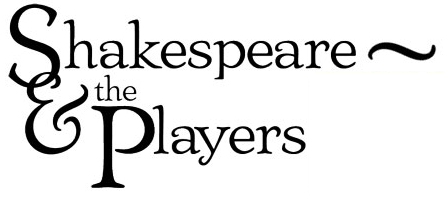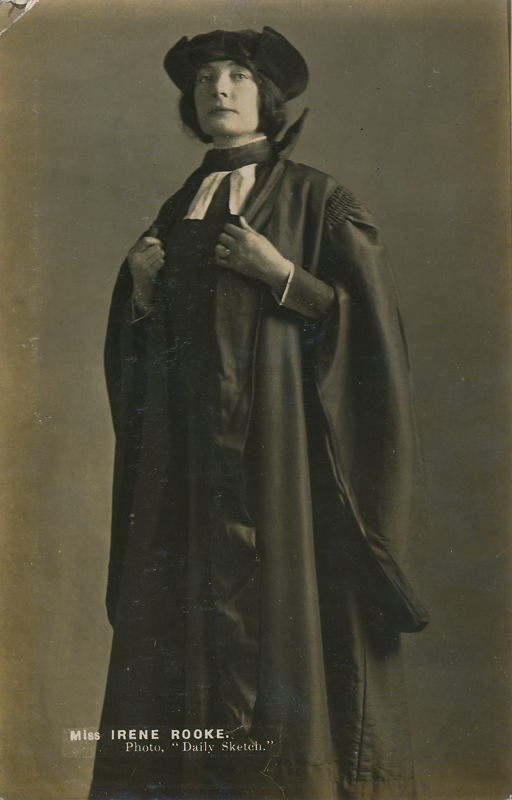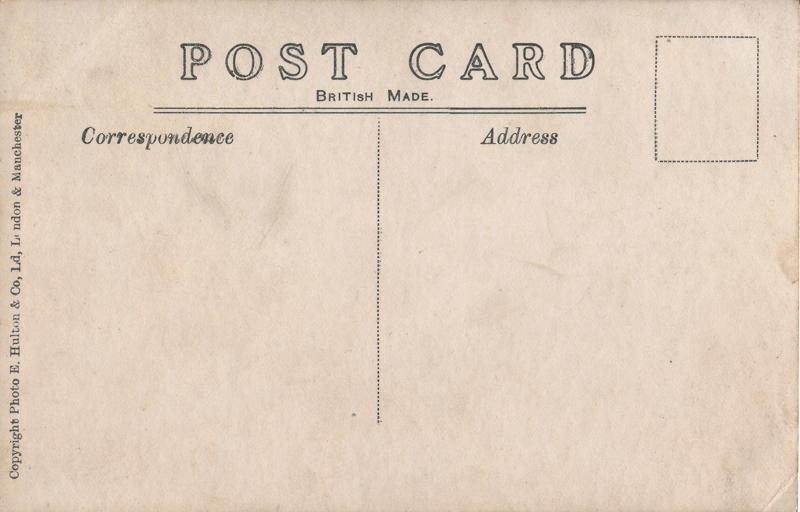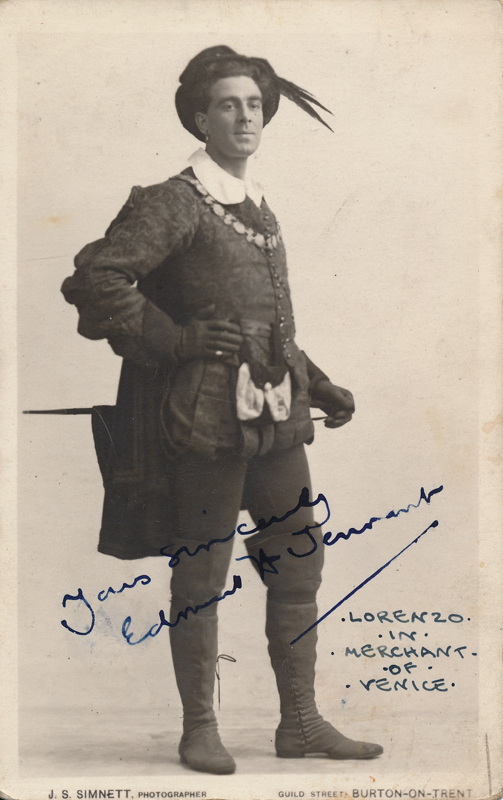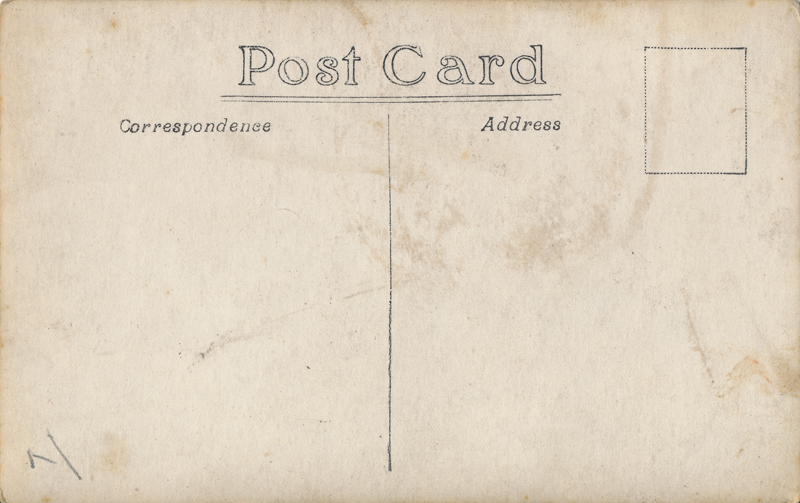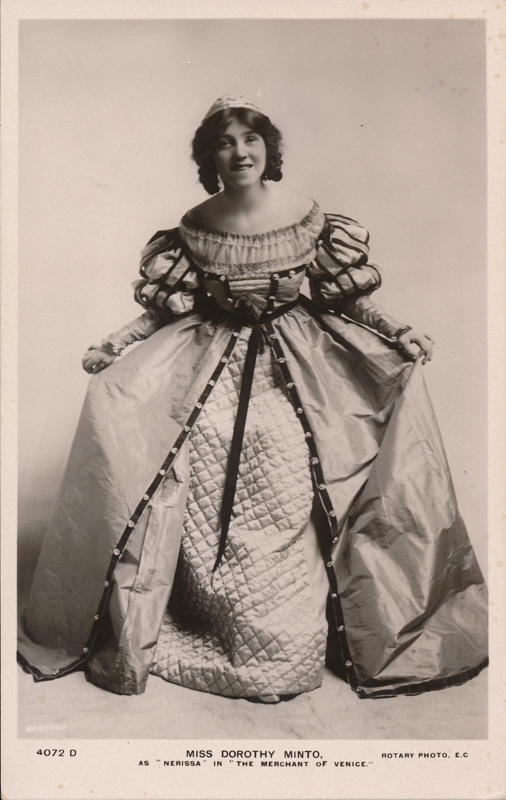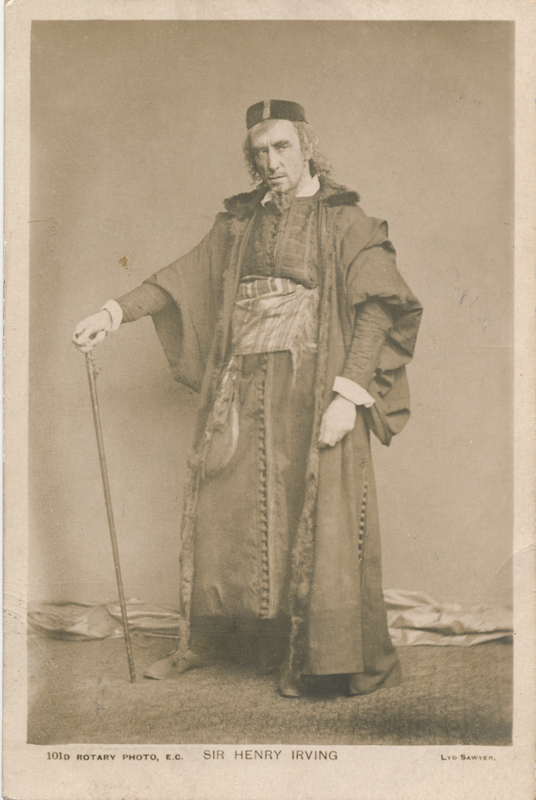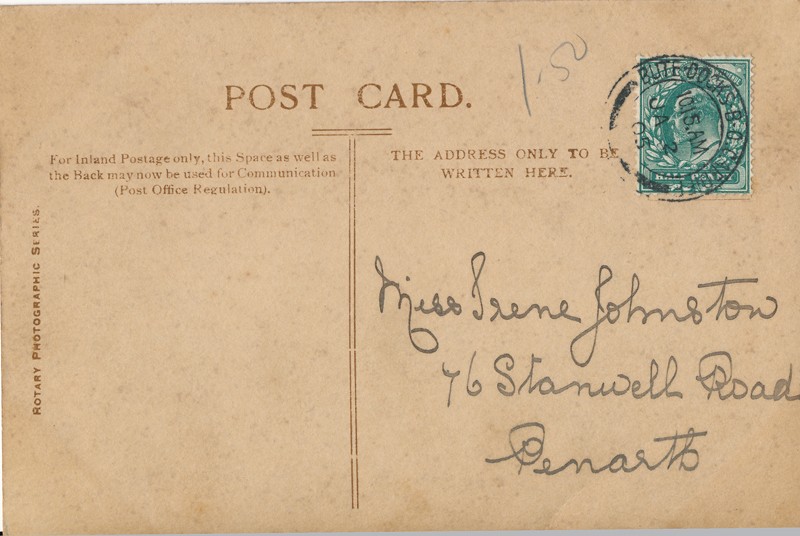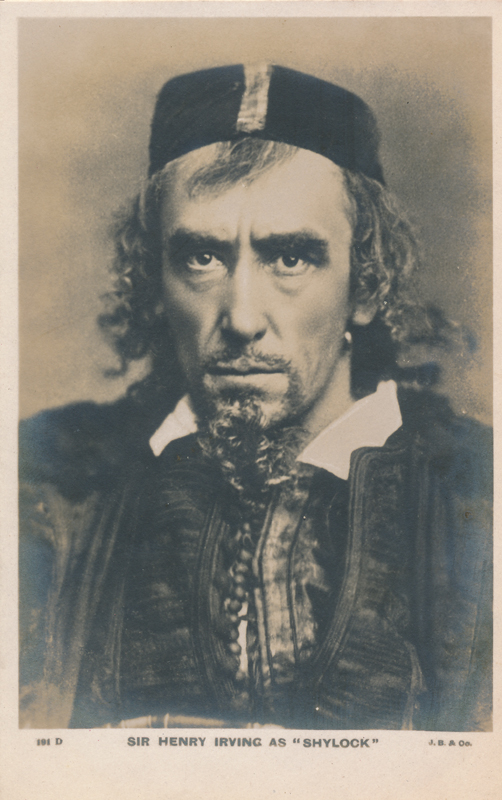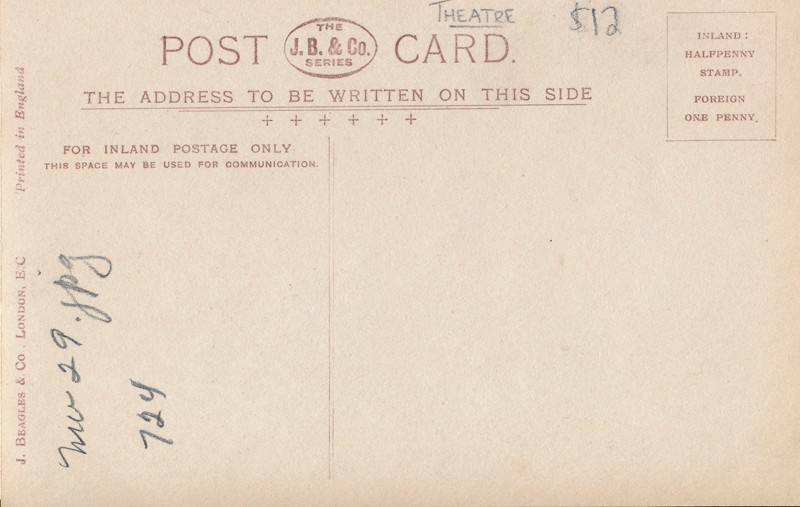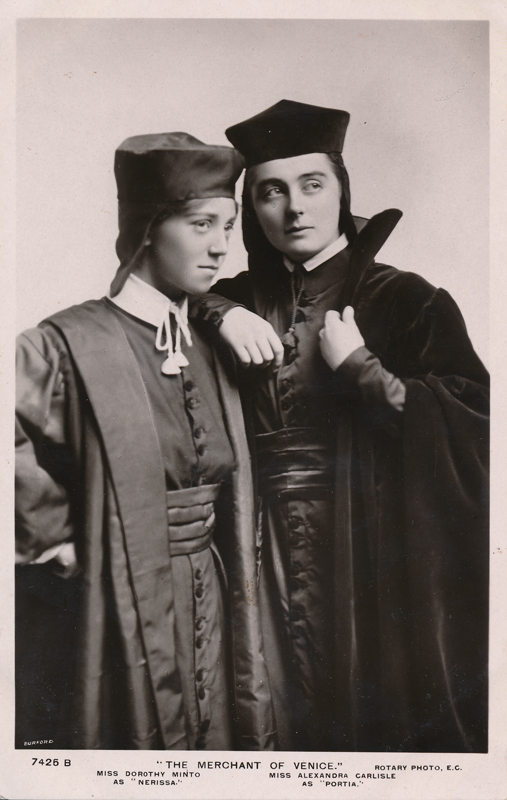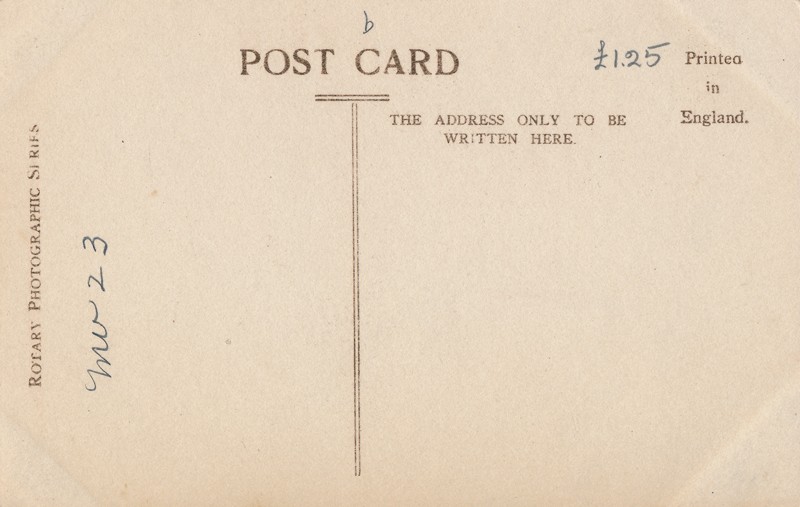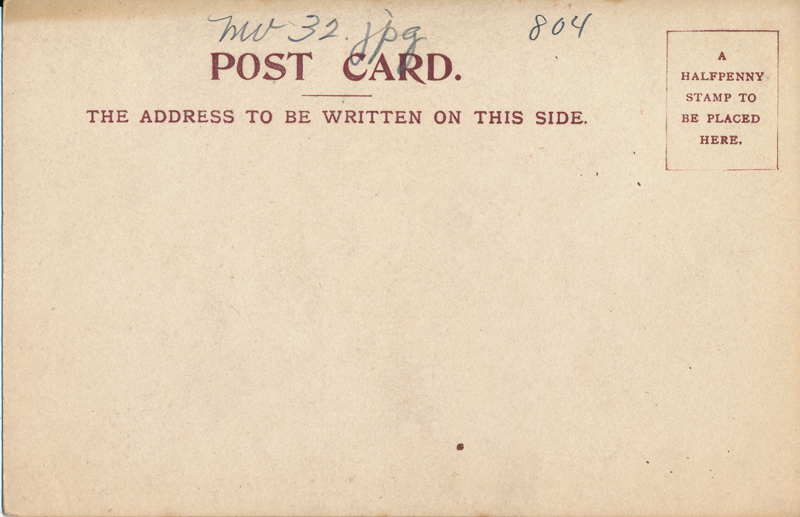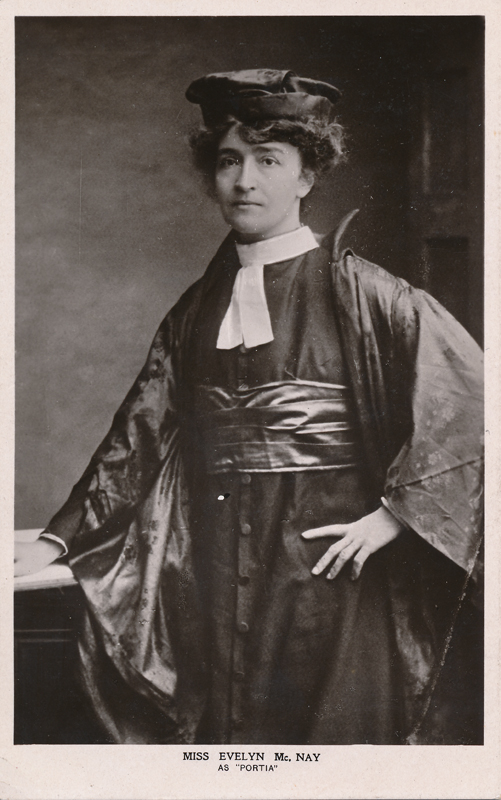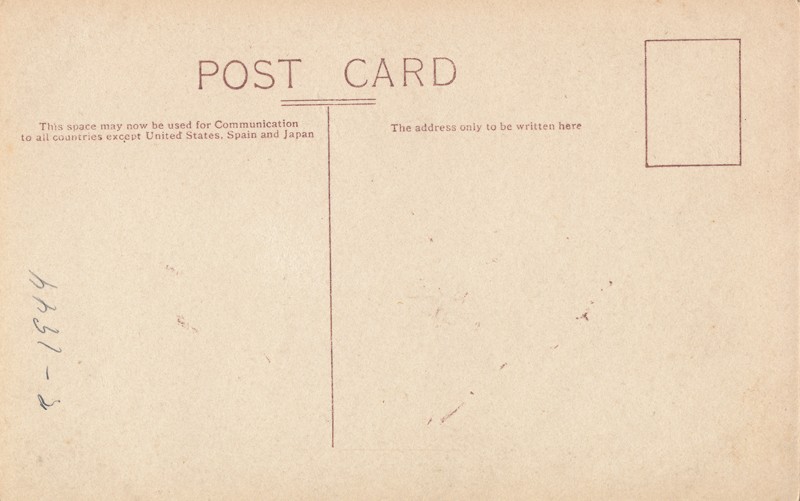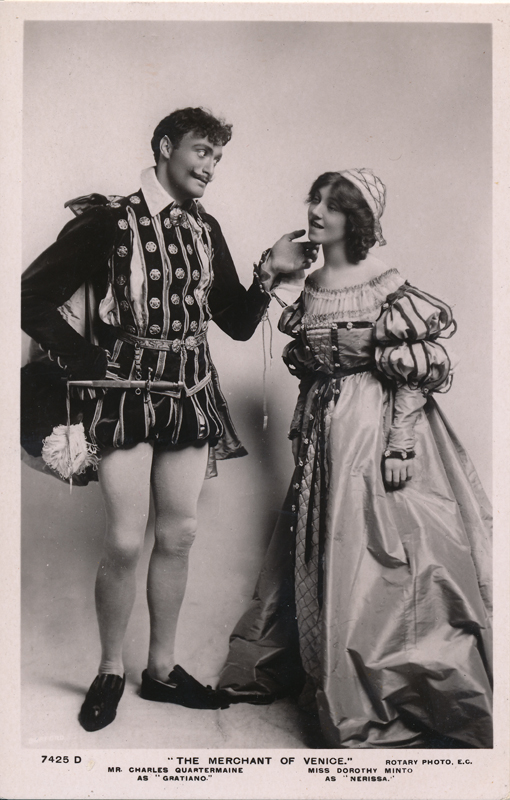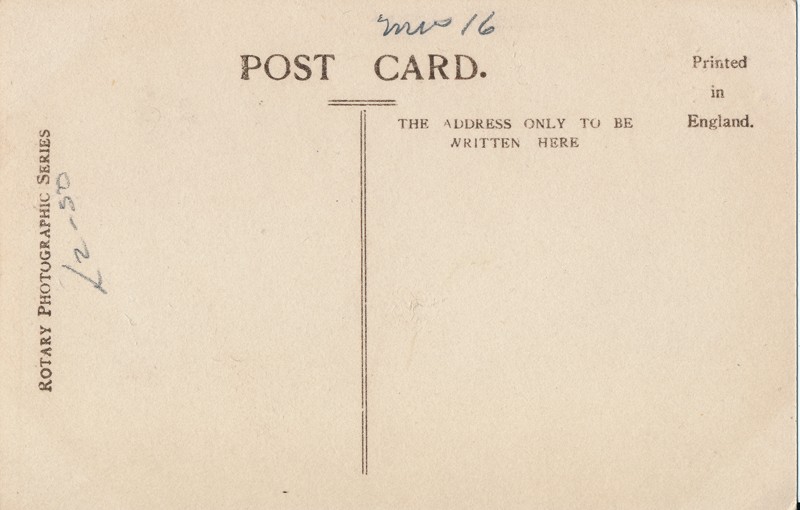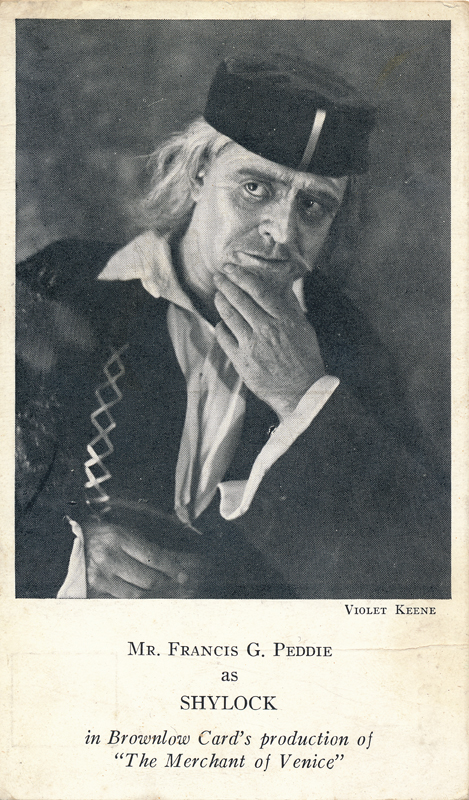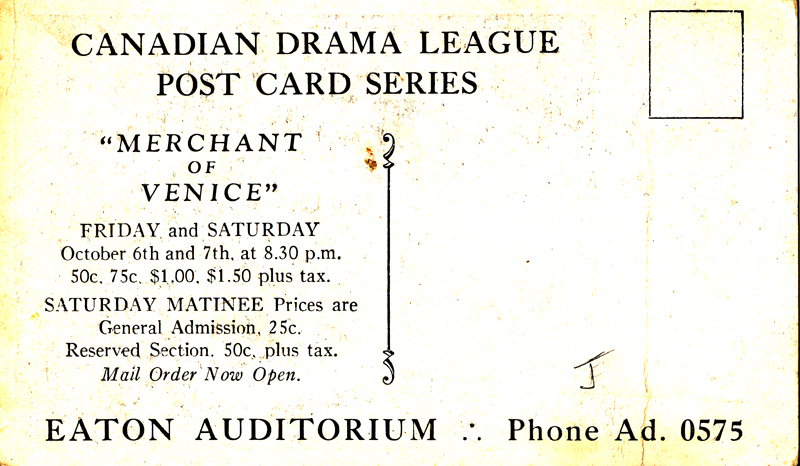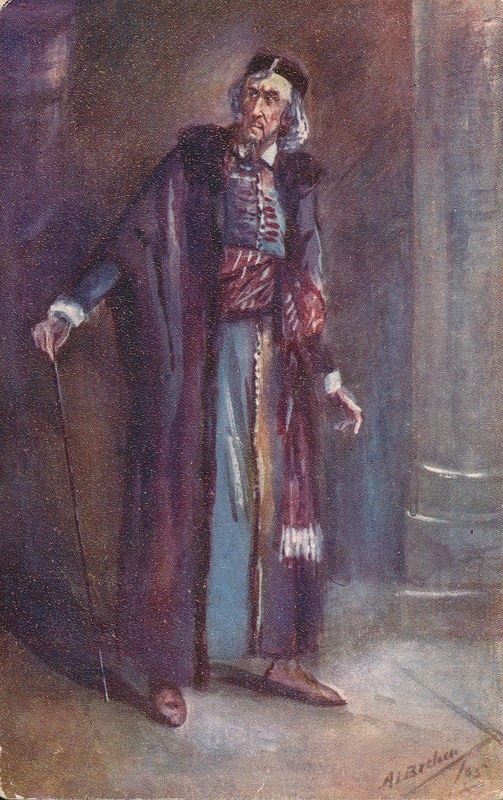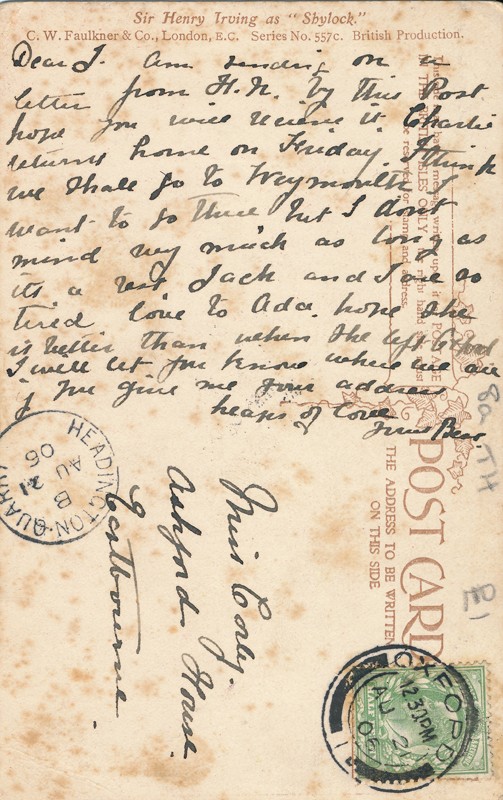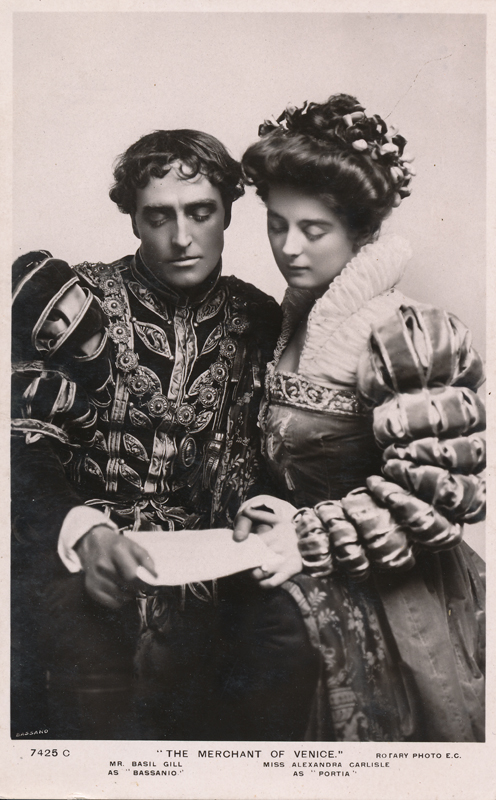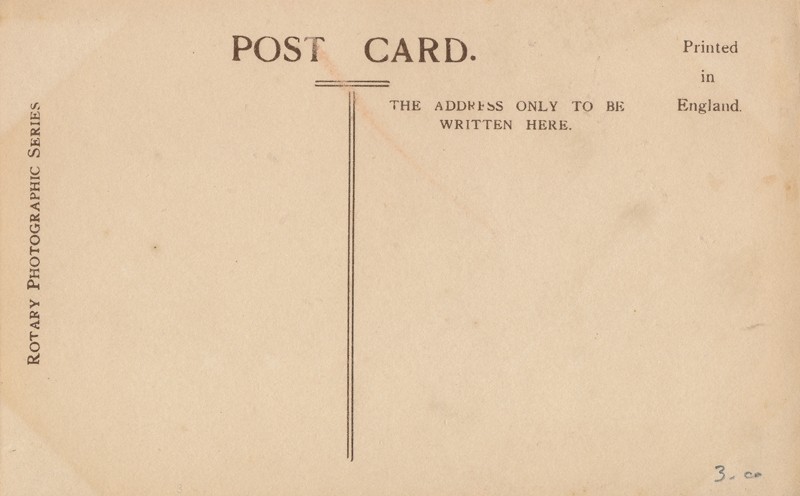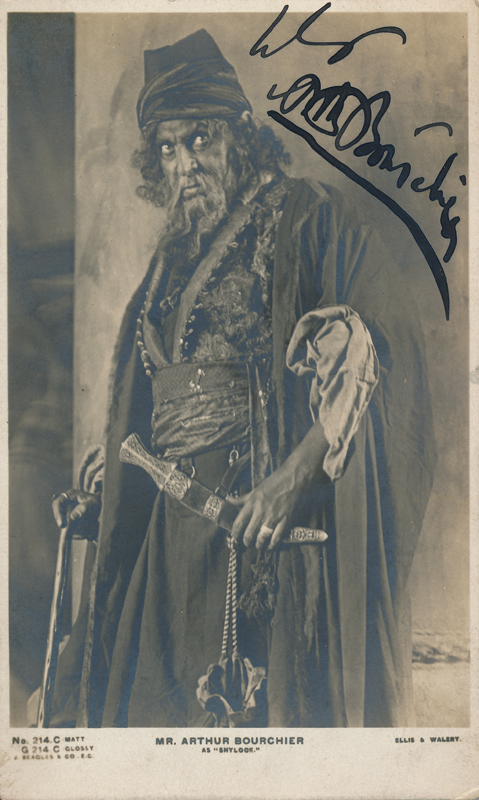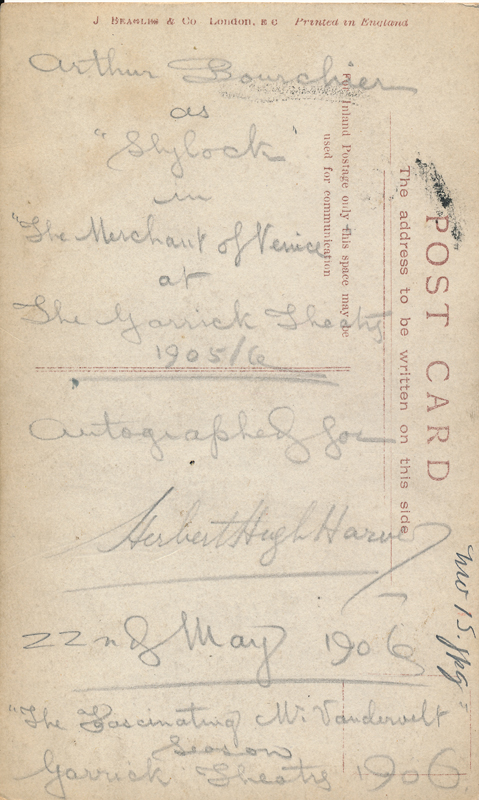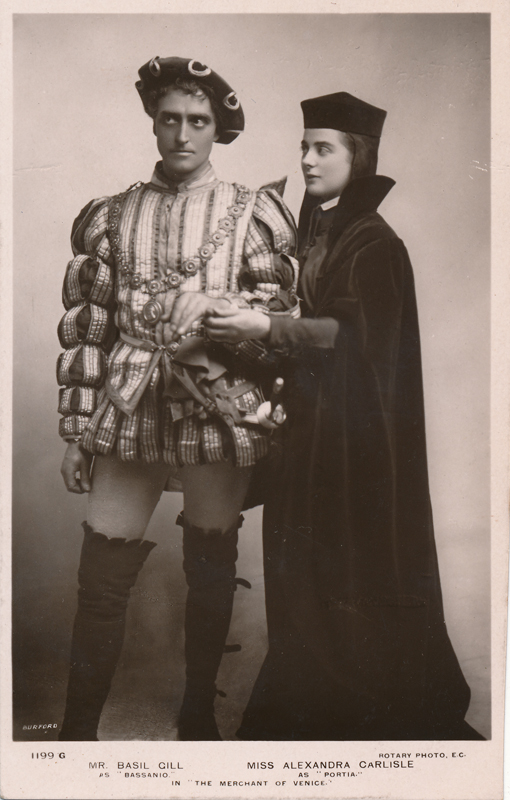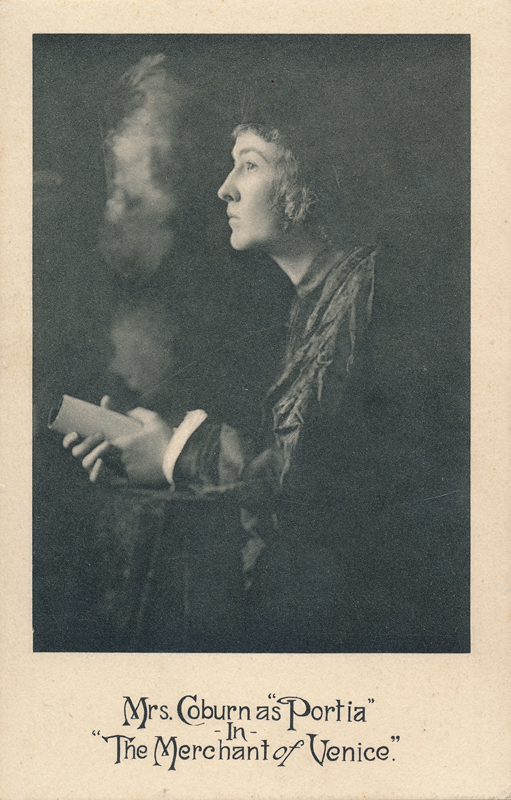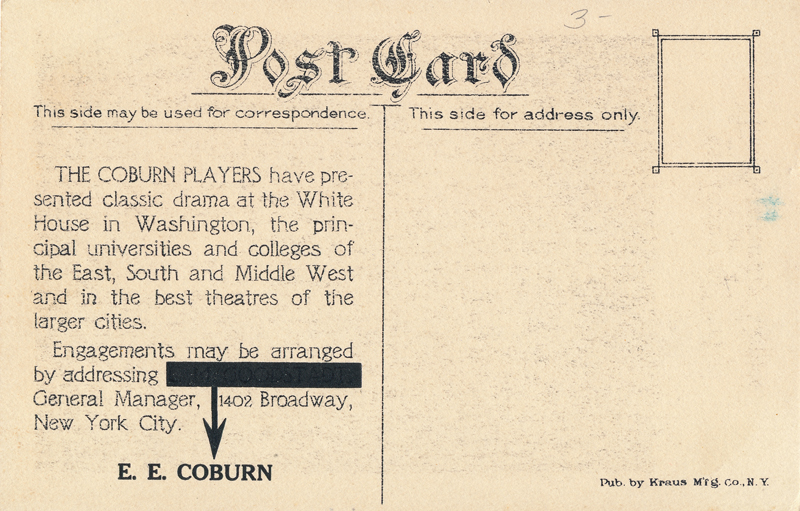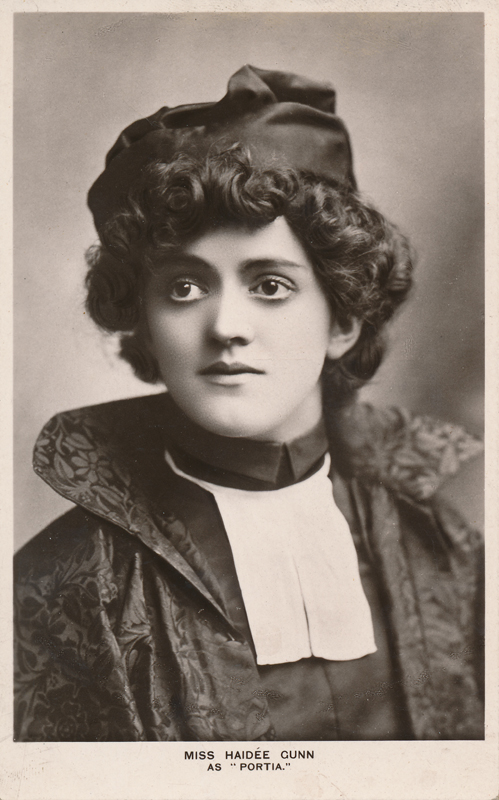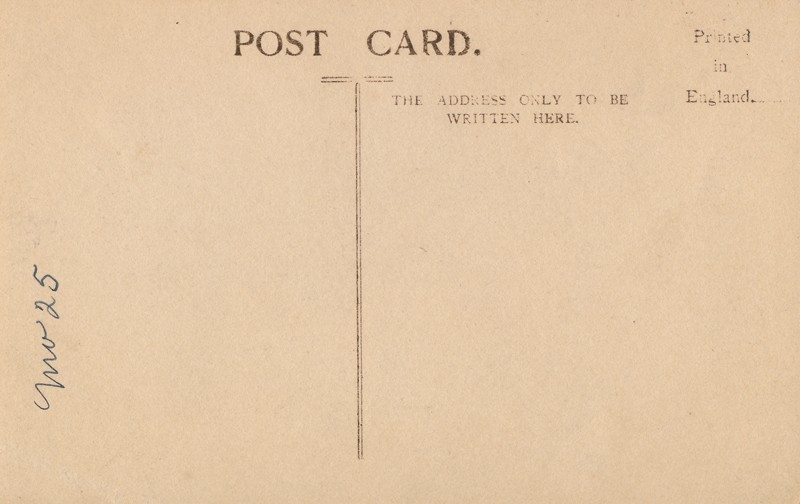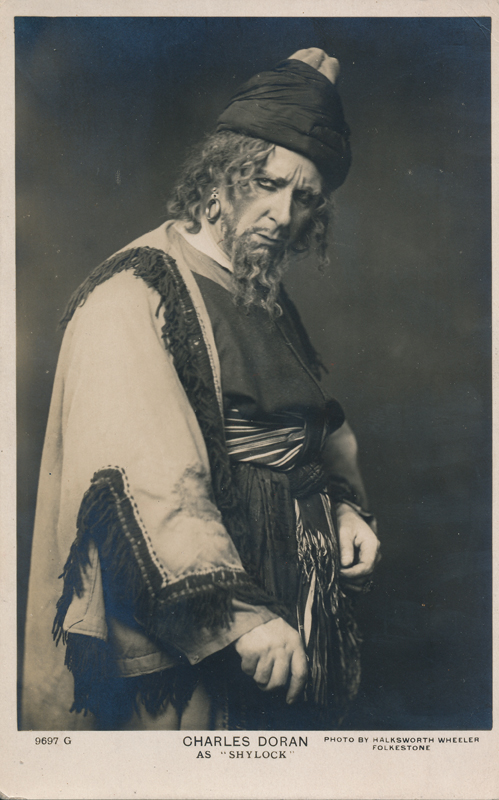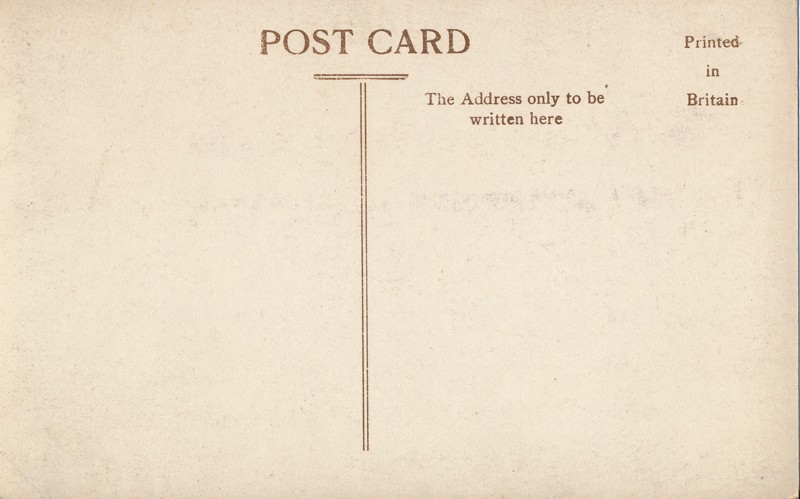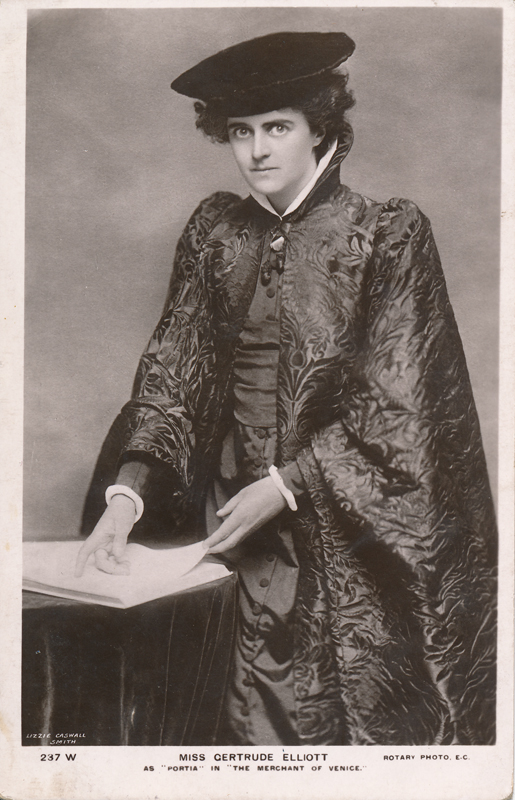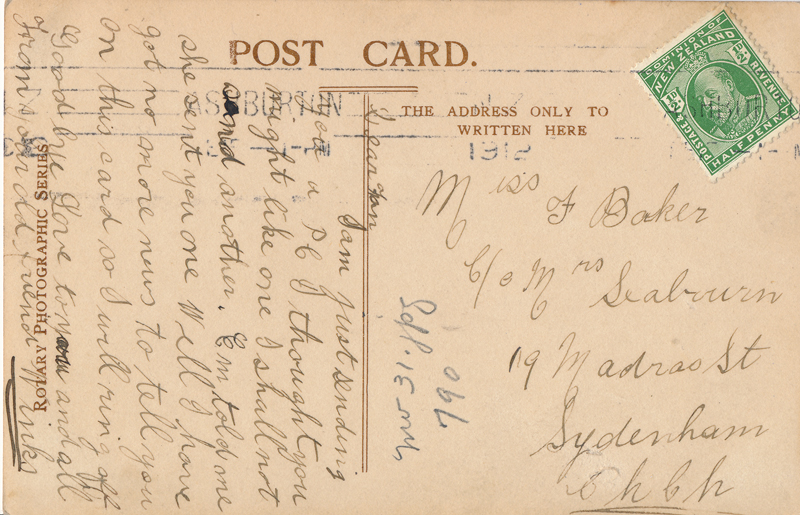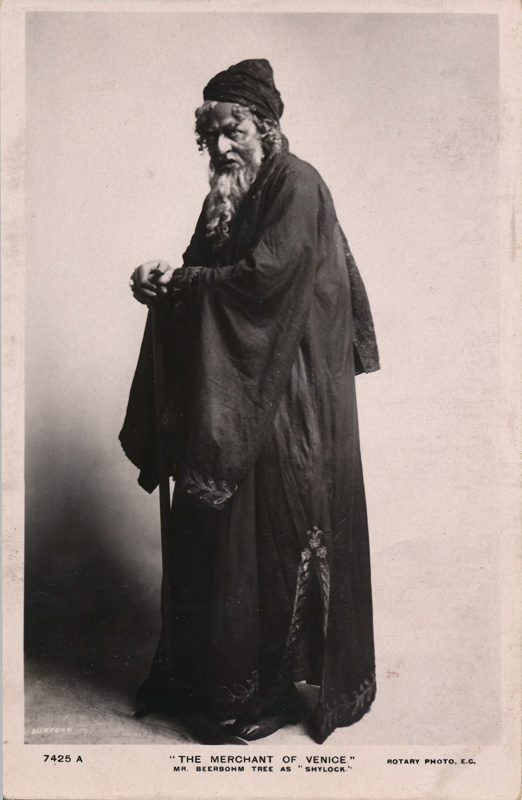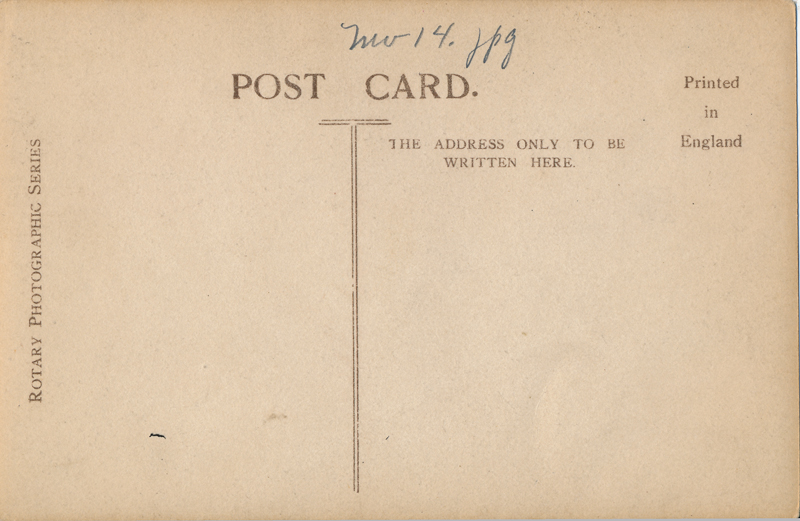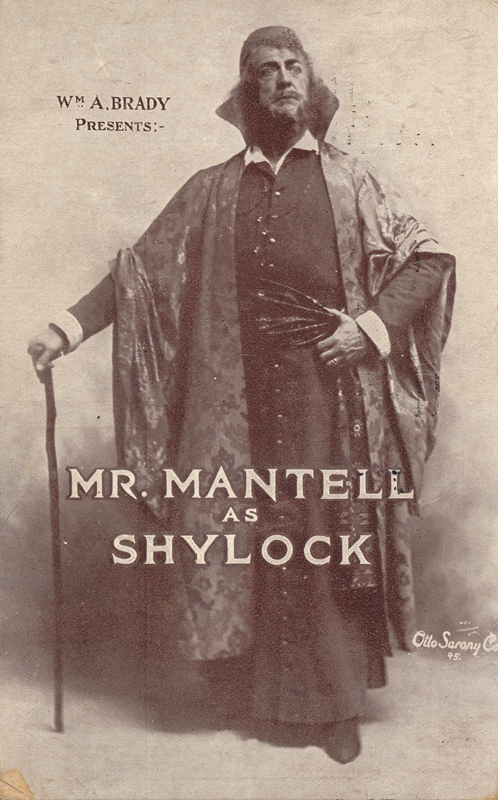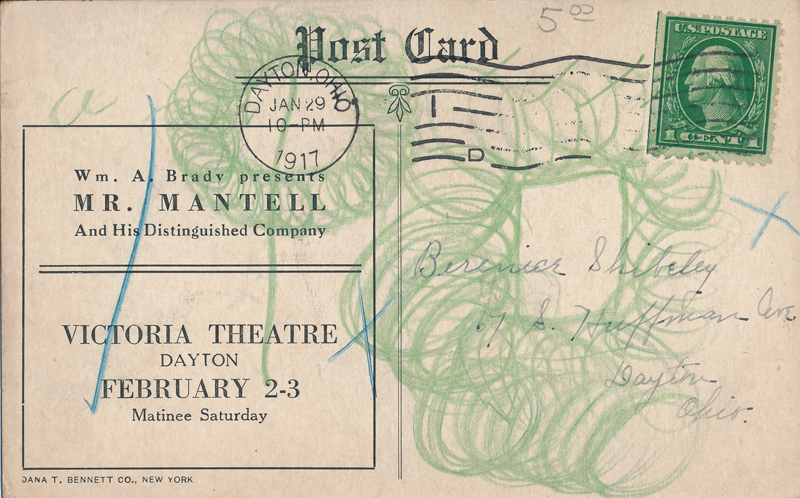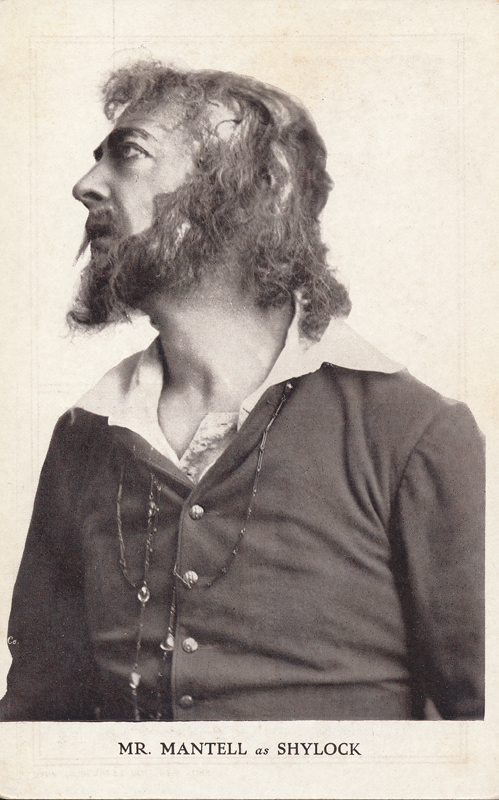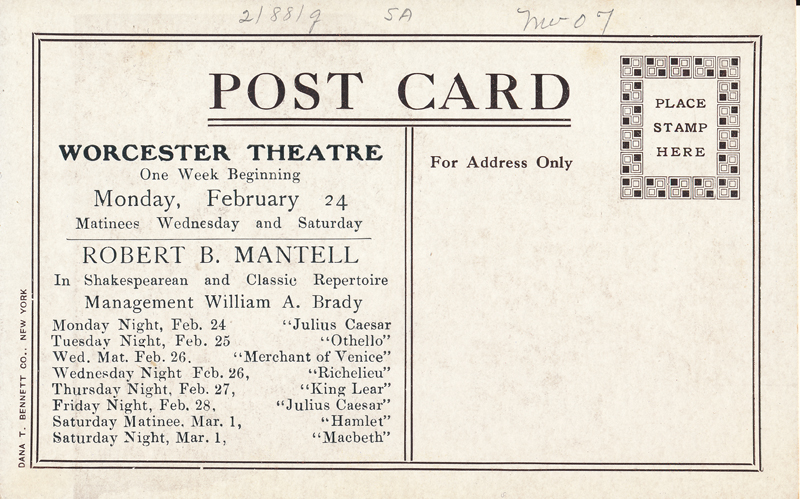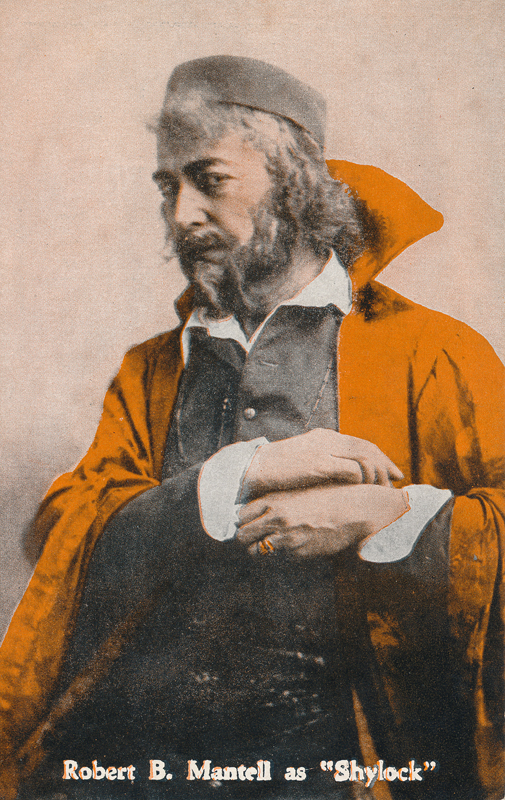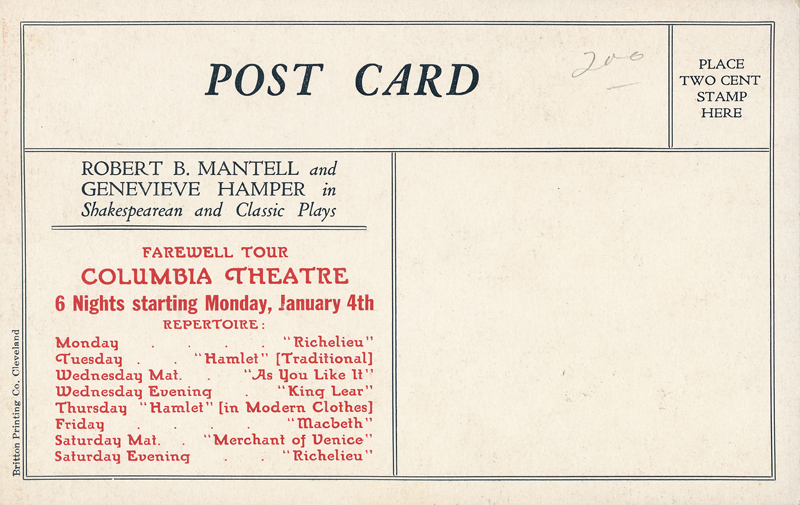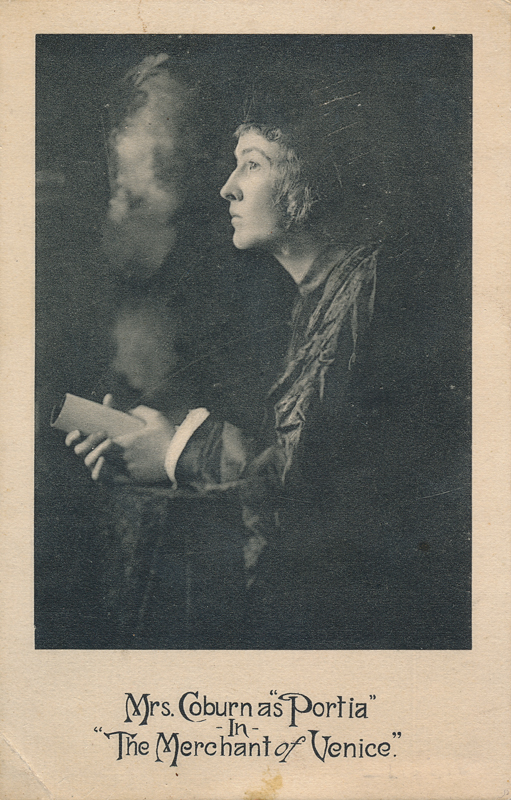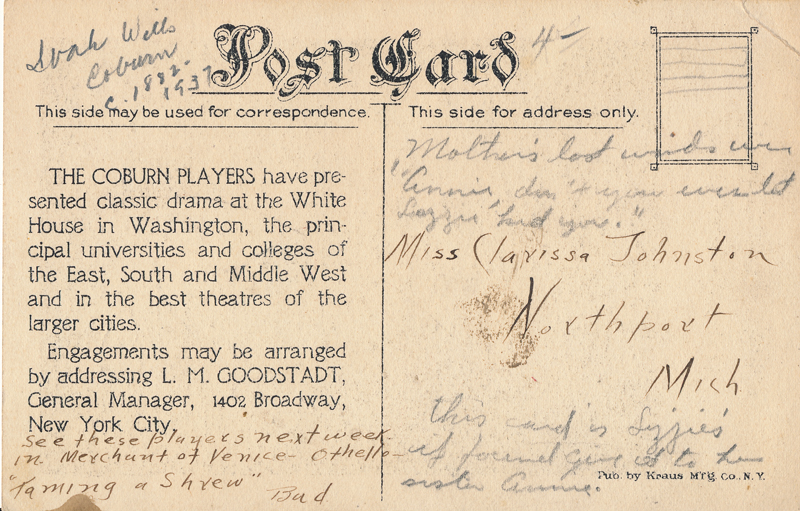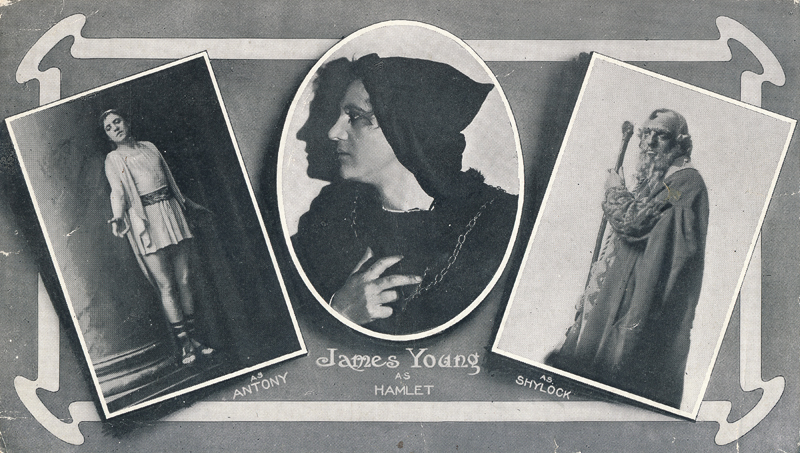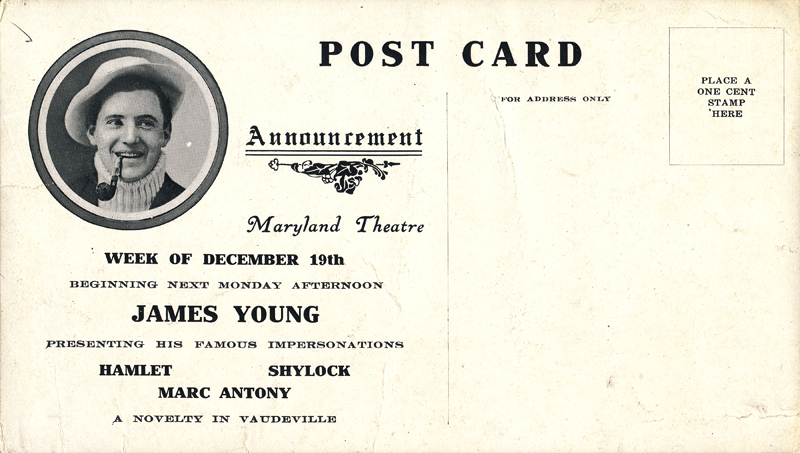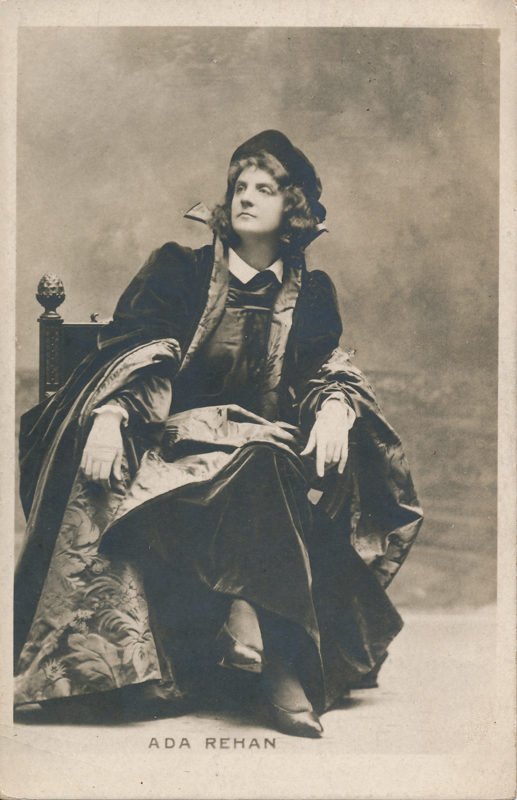
The quality of mercy is not strained. It droppeth as the gentle rain from heaven (4.1)
Antonio, the merchant in The Merchant of Venice, secures a loan from Shylock for his friend Bassanio, who seeks to court Portia. Shylock, a Jewish moneylender, recalls past insults from Antonio and, instead of asking interest on the loan, asks instead—in what he calls a “merry sport”—that if the loan is not repaid, Antonio will owe a pound of his own flesh.
Bassanio sails to Belmont, where the wealthy heiress Portia is being courted by suitors from around the world. Her father’s will requires that the successful suitor solve a riddle involving chests of gold, silver, and lead. Where others have failed, Bassanio succeeds by selecting the right chest. Portia marries Bassanio; her waiting woman, Nerissa, marries his friend Gratiano.
Shylock’s daughter, Jessica, has eloped with Bassanio’s friend Lorenzo, taking her father’s money with her. Shylock is devastated. When Antonio cannot repay the loan, Shylock demands the pound of flesh. When the news reaches Belmont, Bassanio returns to Venice. Portia and Nerissa also travel to Venice, disguised as a lawyer and his clerk. Portia uses the law to defeat Shylock and rescue Antonio (reproduced with permission from Folger).
Postcards of The Merchant of Venice:
Productions of The Merchant of Venice:
The Merchant of Venice was performed 47 times at Stratford-upon-Avon between 1880 and 1978; in London, thirty-five times between 1890 and 1914. The play was performed forty-eight times between 1768 and 1989 on Broadway; and the Internet Movie Database records seventeen film and television versions between 1908 and 2004.
1890 A single performance of The Merchant of Venice was given on August 8 at the Royalty Theatre (London). Charles Cameron played Shylock with Ernest N. Abbott as Antonio, Norman Clark as Bassanio, Olive Stettith as Portia, and Mrs. Gordon Ascher as Nerissa (Wearing, I: 62).
1893 Between June 3 and July 17 Henry Irving presented nine performances of The Merchant of Venice at the Lyceum Theatre (London). Irving played Shylock and Ellen Terry played Portia. William Terriss played as Bassanio, William Haviland as Antonio, Kate Phillips as Nerissa, and Amy Coleridge as Jessica (Wearing, I: 316).
There was one performance of The Merchant of Venice at the Opera Comique (London) on July 11; Herbert Waring played Shylock and Ethel Verne, Portia (Wearing, I: 338).
1895 A single matinee performance of The Merchant of Venice was given on October 17 at the Gaiety Theatre (London). The principle players were Charles Pond as Shylock, Ettie Williams as Portia, J. A. Rosier as Antonio, and Frank Gillmore as Bassanio.
Henry Irving’s production of The Merchant of Venice opened at the Lyceum Theatre (London) on June 17 and ran for seven performances. Henry Irving played as Shylock, Ellen Terry as Portia, Frank Cooper as Bassanio, William Haviland as Antonio, and Maud Milton as Nerissa (Wearing, I: 487).
1896 Edward Hastings directed a production of The Merchant of Venice in a matinee performance at the Duke of York’s Theatre (London) on June 25. Charles Pond played as Shylock, Edward Ferris as Antonio, Frank Gillmore as Bassanio, and Ettie Williams as Portia (Wearing, I: 581-2).
1897 The Merchant of Venice with Bernard Copping as Shylock, Jack Haddon as Bassanio, Ernest K. Nelson as Antonio, V. St. Laurence as Portia, and Geraldine Montrose as Nerissa at the Novelty Theatre (London) on May 17 for a run of five performances (Wearing, II: 659).
Ben Greet managed a production of The Merchant of Venice that opened at the Olympic Theatre (London) on May 26 and ran for eight performances. Members of the cast were George R. Foss as Antonio, Nutcombe Gould as Shylock, Alfred Kendrick as Bassanio, Lily Hanbury as Portia, and Mary C. MacKenzie as Nerissa (Wearing, II: 663).
Henry Irving played Shylock in his revival of The Merchant of Venice at the Lyceum Theatre (London); the play opened July 15 for three performances. Ellen Terry played Portia, F. H. Macklin played Antonio, Frank Cooper played Bassanio, and Maud Milton played Nerissa (Wearing, II: 681).
1898 Henry Irving played Shylock and Ellen Terry Portia in yet another revival of The Merchant of Venice that opened at the Lyceum Theatre (London) and ran for 48 performances (February 17-April 26). Others in the cast were F. H. Macklin as Antonio, Frank Cooper as Bassanio, and Maud Milton as Nerissa (Wearing, II: 719-20).
1900 On April 23 Frank Benson and his company began the annual Shakespeare Festival at Stratford-upon-Avon. Among the players were Marion Terry as Rosalind in As You Like it and John Coleman as Pericles. The company also performed Othello, Macbeth, and The Merchant of Venice (Loney, I: 3).
Henry Irving produced seven performances (July 17-28) of The Merchant of Venice at the Lyceum Theatre (London); he played Shylock and Ellen Terry played Portia. Laurence Irving took the part of Antonio, and Arthur Royston played Bassanio (Wearing, I: 45).
1901 Frank Benson’s company presented thirteen performances (January 16-February 12) of The Merchant of Venice at the Comedy Theatre (London). Benson played Shylock and Eleanor Calhoun took the part of Portia. Antonio was played by Alfred Brydone and Bassanio by Frank Rodney (Wearing, I: 72).
1902 In June, Henry Irving’s company presented The Merchant of Venice at the Lyceum Theatre, London. Sir Henry played Shylock, with Laurence Irving as Antonio, Tyrone Power as Bassanio, and Ellen Terry as Portia (Wearing, I: 167).
1905 Frank Benson opened a three-week Shakespeare Festival at Stratford-upon-Avon with The Merchant of Venice. Henry Irving was to play Shylock, but had to withdraw due to illness; Frank Benson substituted as Shylock. The Comedy of Errors was revived at the Festival for the first time since 1884 (Loney, I: 27).
April 29 marked the beginning of Sir Henry Irving’s final London season. His illustrious career in Shakespeare ended with his playing Shylock, a role for which he became famous (Loney, I: 27).
1907 On March 4 Ben Greet’s company returned to New York City’s Garden Theatre. The plays in repertory included Macbeth, As You Like It, Julius Caesar, Twelfth Night, Much Ado About Nothing, and The Merchant of Venice. Among Greet’s players were Sybil Thorndyke, Julia Perkins, and Sidney Greenstreet (Loney, I: 37).
1908 Frank Ludlow’s ensemble began a two-week engagement at New York City’s Bijou Theatre; the plays by Shakespeare were Richard II and The Merchant of Venice (Loney,I: 44).
On April 14, Herbert Beerbohm Tree revived The Merchant of Venice at His Majesty’s Theatre, London; Alexandra Carlisle played Portia. Some critics objected to Tree’s interpretation of Shylock and felt the play had unacceptable anti-semitic elements (Loney, I: 44).
1909 The London Shakespeare Festival presented by Herbert Beerbohm Tree’s ensemble, began June 21 at His Majesty’s Theatre, London. The festival ran for two weeks with The Merry Wives of Windsor, Twelfth Night, Julius Caesar, Hamlet, Richard III, The Merchant of Venice, and Macbeth (Loney, I: 50).
Gerald Lawrence and Fay Davis open their Shakespeare season on April 12 at the Royal Court Theatre, London. The plays included As You Like It, Romeo and Juliet, The Merchant of Venice, and Twelfth Night (Loney, I: 49).
1910 On January 17, Ben Greet’s repertory of plays opened at the Garden Theatre, New York City with, among other classics, these Shakespeare plays: Macbeth, Julius Caesar, The Tempest, A Midsummer Night’s Dream, and The Merchant of Venice (Loney, I: 53).
Starting on February 7, E. H. Sothern and Julia Marlowe play for six weeks at the Academy of Music, New York City. Included in the repertory are Hamlet, As You Like It, The Taming of the Shrew, Romeo and Juliet, The Merchant of Venice, and Twelfth Night (Loney, I: 53).
Beginning on March 28, several companies presented a London Shakespeare Festival at His Majesty’s Theatre. Herbert Beerbohm Tree’s company played The Merry Wives of Windsor, Julius Caesar, Twelfth Night, and Hamlet. Norman Mckinnel presented King Lear and The Merchant of Venice; Arthur Bourchier and his company came next with The Merchant of Venice. H. B. Irving played Hamlet, and Frank Benson’s “Bensonians” followed with theTaming of the Shrew and Coriolanus. Poel’s Elizabethan Stage Society gave a performance—in the “original” sixteenth-century style—of The Two Gentlemen of Verona. Lewis Waller revived his Henry V, and Tree returned to close the Festival with The Merchant of Venice and Richard II (Loney, I: 54).
The Stratford-upon-Avon Shakespeare Festival opened on April 22 this year. The Festival began with Tree’s Hamlet; Benson’s company then performed The Taming of the Shrew, The Two Gentlemen of Verona,and Richard III with Genevieve Ward and The Merchant of Venice with Ellen Terry. The season was cut short and ended when Edward VII died on May 6. As a tribute to Benson and the Stratford Shakespeare Festival, forty “Bensonians” presented scenes from The Merchant of Venice and several other plays (Loney, I: 54).
1911 On April 17, the annual Stratford Shakespeare Festival opened with The Merry Wives of Windsor. This year Frank Benson also offered The Merchant of Venice, Twelfth Night, Much Ado About Nothing, Henry V, Julius Caesar, Macbeth, As You Like It, Romeo and Juliet, A Midsummer Night’s Dream, and Richard III (Loney, I: 158).
The London Shakespeare Festival opened on May 22 at His Majesty’s Theatre with Herbert Beerbohm Tree’s Julius Caesar, followed by Oscar Asche and Lily Brayton‘s As You Like It. Next came The Merchant of Venice and Twelfth Night. Frank Benson presented The Taming of the Shrew, Tree revived his Henry VIII, and the Festival closed with Benson’s Richard III and on July 3, the final night, The Merry Wives of Windsor (Loney, I: 158).
E. H. Sothern and Julia Marlowe opened their season at the Broadway Theatre, New York City. In the repertory were Macbeth, The Taming of the Shrew, Hamlet, The Merchant of Venice, Romeo and Juliet,and Twelfth Night. They returned on November 20 and added As You Like It to the list (Loney, I: 158).
On July 22, Stratford’s second summer season began; this is the year that Baliol Holloway debuted with the Bensonians. The plays performed are A Midsummer Night’s Dream, Henry V, Richard II, The Merchant of Venice, Romeo and Juliet, As You Like It, The Taming of the Shrew, Hamlet, and The Tempest (Loney, I: 159).
1912 On April 9, Herbert Beerbohm Tree opened his season of Shakespeare at His Majesty’s Theatre, London, with Othello; his company also performedThe Merchant of Venice, Twelfth Night, and Henry VIII(Loney, I: 63).
The annual Stratford-upon-Avon Shakespeare Festival opened this year on April 22 with The Merchant of Venice; Frank Benson’s company also performed Henry V, A Midsummer Night’s Dream,Hamlet, Romeo and Juliet, Coriolanus, The Taming of the Shrew, Julius Caesar, Twelfth Night, and Richard III (Loney, I: 63).
1913 In the month of June, Beerbohm Tree staged a revival of The Merchant of Venice, Twelfth Night, Julius Caesar, and Romeo and Juliet; Tree played Shylock, Malvolio, Marc Antony, and Mercutio (Loney, I: 68).
Frank Benson’s summer season of Shakespeare’s plays opened on August 2 with The Merchant of Venice; other plays performed that season were As You Like It, Hamlet, King John, Richard II, The Merry Wives of Windsor, Much Ado About Nothing, Romeo and Juliet, The Taming of the Shrew, Twelfth Night, and Henry IV, Part 2 (Loney, I: 68).
1914 Another annual Stratford Shakespeare Festival opened with A Midsummer Night’s Dream; Frank Benson’s company was still on tour in the United States, so Patrick Kirwan directed this year’s offerings: Much Ado About Nothing, The Comedy of Errors,Twelfth Night, Hamlet, As You Like It, and The Merchant of Venice (Loney, I: 72).
Frank Benson returned from the United States to direct the Stratford Summer Festival. He opened the four-week festval with Much Ado About Nothing. The company also presented Hamlet, Richard II, Henry IV, Part 2,Henry V, The Merry Wives of Windsor, The Merchant of Venice, Twelfth Night, Julius Caesar, As You Like It,The Taming of the Shrew, and Romeo and Juliet (Loney, I: 73).
On October 5, the Old Vic Theatre, under the management of Lilian Baylis, mounted a production of The Taming of the Shrew. Additionally, the following plays were performed for the first time in 1914 at the Old Vic: Hamlet, The Merchant of Venice, The Tempest, The Merry Wives of Windsor, The Comedy of Errors, Twelfth Night, and A Midsummer Night’s Dream. Baylis will by 1923 have produced the entire Shakespeare canon of thirty-seven plays (Loney, I: 73).
